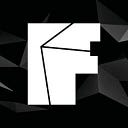The day has come where our forgotten histories wash up on the shore.
Rhian Morris
The second part of FIBER Festival’s Reassemble Lab took place from 25 -30 October 2021. Under the title Sound Ecologies, we collectively explored how sound can make audible the invisible affects of the Anthropocene. The lab invited artistic creators, researchers and scientists to collaborate in a peer-to-peer setting, through a combination of lectures, workshops, and fieldwork to support group research and work development. We took Borselle as our case study, an area in the Netherlands where we set out to capture the often untraceable interactions between industry, engineering and ecology. This poetic text by Rhian Morris responds to the conflicting emotions present during our time standing on the radioactive soil outside COVRA.
The day has come where our forgotten histories wash up on the shore…
The sea will no longer take them
We must kindle conflict over meaning
What does time mean to you, if you are a billion years old?
What does waste mean to you, if your actions are never with intention?
What does it mean to live and die, if you are not aware of either?
Let the questions always be open and allow a multiplicity of meanings, never ending always beginning circumnavigating what it means to be human.
We must kindle conflict over meaning.
a colonial past faces a nuclear future
threads seeped in our colonial histories bind together the principles of western enlightenment rationale
on the backs of others we will stand
unmarked barrels hold tonnes of nuclear waste, inconspicuously
on the backs of future ancestors we stand
It is time to ask the questions for which there are no answers.
Together we dwell in the space of unknowing, where nuclear histories converge with the voices of our future ancestors. This space of no-time exists under our feet, where the waters of the earth are infiltrated by radioactivity and the bones of our more-than-human kin weep in grievance for everything lost and everything yet to come. Here, it is written. The waters that trickle through the ground ooze through your pores until you forget which body is yours and which ours, blood and flesh, earth and water.
We are all radioactive now.
Written by: Rhian Morris
Photos by: Rhian Morris
Rhian Morris is an artistic researcher and scenographer. Her practice offers audiences a surrender to the unknown, through sensory or embodied experiences, as well as networks of radical honesty. In a post-COVID world this looks a lot different than it did previously, and she now curates social scenographies; by facilitating experiences and spaces for conversation and contemplation on more-than-human timescales. She seeks to tip the scales away from the hegemony of the ocular, linear and rational, in favour of the messy, intertwined and unknowable. She is interested in the translation of experience/knowledge through different vocabularies, such as from movement to visualisation to sound. How can these art forms speak to each other, what are the gaps between them where things get lost and what does this reveal about our human connectedness?
